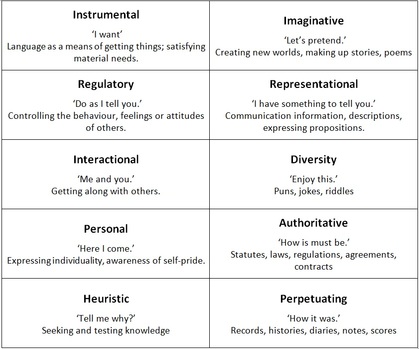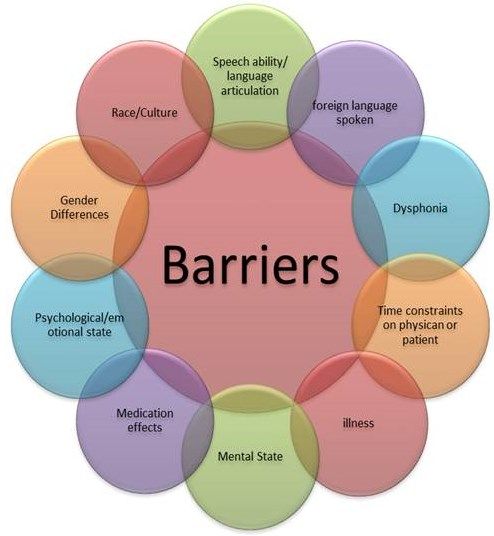How To Stop Saying Like And Filler Words?
Are you tired of constantly using filler words like “like” in your conversations? Do you find yourself struggling to express your thoughts clearly and concisely? If so, you’ve come to the right place! In this article, we will explore practical tips and strategies on how to stop saying filler words and improve your communication skills. Whether you’re a student, professional, or simply someone who wants to enhance their speaking abilities, these techniques will help you speak more confidently and effectively. So, let’s dive in and discover how to eliminate those pesky filler words from your vocabulary once and for all!
Have you ever noticed how often you use filler words like “um,” “uh,” or “like” in your conversations? It’s a common habit that many of us struggle with, but the good news is that it’s a habit that can be broken. In this article, we will explore practical tips and effective strategies to help you stop saying filler words and improve your overall communication skills. Whether you’re giving a presentation, participating in a meeting, or engaging in casual conversations, these techniques will assist you in speaking more fluently and confidently. Let’s get started on this journey to becoming a more articulate and engaging communicator!
- Acknowledge the problem: Recognize when you use filler words like “like” and be mindful of their usage.
- Practice pausing: Instead of filling silences with filler words, take a moment to gather your thoughts.
- Record yourself: Listen to recordings of your speech to identify patterns and work on reducing filler words.
- Expand your vocabulary: Improve your word choice to express your thoughts more precisely.
- Seek feedback: Ask friends or colleagues to point out when you use filler words, so you can correct them.
What are filler words and why do people use them?
Filler words are words or phrases that are used to fill gaps in speech or conversation. They are often used when a person is thinking or trying to gather their thoughts. Common filler words include “like,” “um,” “uh,” “you know,” and “so.” People use filler words for various reasons, such as to buy time while they think, to avoid awkward silences, or to sound more conversational and relatable. However, excessive use of filler words can be distracting and diminish the clarity and effectiveness of communication.
Why is it important to reduce the use of filler words?
Reducing the use of filler words is important for several reasons. Firstly, excessive use of filler words can make a person come across as less confident and less knowledgeable about the topic they are discussing. It can also disrupt the flow of conversation and make it difficult for others to follow along. Additionally, using too many filler words can be seen as unprofessional in certain settings, such as presentations or job interviews. By reducing the use of filler words, individuals can improve their communication skills, convey their thoughts more clearly, and appear more confident and professional.
What are some common filler words?
Some common filler words include “like,” “um,” “uh,” “you know,” “so,” “well,” “actually,” “basically,” “I mean,” “sort of,” “kind of,” and “really.” These words are often used when a person is trying to think or fill in gaps in their speech. While occasional use of filler words is natural and normal in everyday conversation, excessive and repetitive use can be distracting and diminish the impact of the message being conveyed.
How can I become aware of my filler words?
Becoming aware of your filler words is the first step in reducing their usage. One effective way to become more conscious of your filler words is to record yourself while speaking or presenting. By listening to the recording, you can identify the specific filler words you tend to use and the situations in which they occur most frequently. Another strategy is to ask a trusted friend or colleague to provide feedback on your speech patterns and point out any filler words they notice. By actively seeking feedback and self-monitoring, you can become more aware of your filler word usage and take steps to reduce it.
What are some techniques to reduce the use of filler words?
There are several techniques that can help reduce the use of filler words. One effective strategy is to practice pausing and taking brief moments of silence instead of using filler words. This allows you time to gather your thoughts and formulate your next sentence without relying on fillers. Another technique is to consciously replace filler words with more specific and meaningful language. By choosing your words carefully and being mindful of your speech, you can convey your thoughts more clearly and effectively. Additionally, practicing public speaking or engaging in activities that require clear and concise communication can also help reduce filler word usage.
Why is it important to practice reducing filler words?
Practicing the reduction of filler words is important because it helps to improve your overall communication skills. By consciously working on reducing the use of filler words, you can enhance your clarity, confidence, and effectiveness as a speaker. It also allows others to better understand and engage with your message. Whether you are giving a presentation, participating in a job interview, or simply having a conversation, practicing the reduction of filler words can significantly enhance your ability to communicate and connect with others.
What are some alternative phrases to use instead of filler words?
Instead of using filler words, you can use alternative phrases that add value to your speech and convey your message more effectively. For example, instead of saying “um,” you can use phrases like “let me think,” “give me a moment,” or “allow me to gather my thoughts.” Similarly, instead of using “like” excessively, you can use phrases such as “for example,” “such as,” or “as an illustration.” By consciously replacing filler words with more meaningful and purposeful language, you can enhance the impact and clarity of your communication.
How can mindfulness help in reducing filler words?
Mindfulness can be a powerful tool in reducing the use of filler words. By practicing mindfulness, you become more aware of your thoughts, speech patterns, and habits. This heightened awareness allows you to catch yourself using filler words and make a conscious effort to replace them with more deliberate and purposeful language. Mindfulness also helps in staying present in the conversation or presentation, reducing the tendency to rely on filler words as a way to fill silences or distract from discomfort. By incorporating mindfulness into your daily life, you can gradually reduce the use of filler words and improve the quality of your communication.
What are some resources or courses available to help reduce filler words?
There are various resources and courses available to help individuals reduce the use of filler words. Many public speaking courses and workshops focus on effective communication techniques, including techniques to minimize the use of filler words. Online platforms, such as Udemy and Coursera, offer courses specifically designed to improve public speaking skills and reduce filler word usage. Additionally, books and podcasts on communication and public speaking often include tips and strategies for minimizing filler words. Exploring these resources can provide valuable insights and practical exercises to help you become a more confident and articulate speaker.
How long does it take to reduce filler word usage?
The time it takes to reduce filler word usage varies from person to person. It depends on factors such as the frequency of filler word usage, the individual’s level of awareness, and the effort put into practicing alternative speech patterns. With consistent practice and conscious effort, it is possible to see noticeable improvement within a few weeks or months. However, it is important to remember that reducing filler words is a continuous process that requires ongoing attention and practice. The more consistently and intentionally you work on reducing filler words, the more progress you are likely to make in the long run.
Can filler words be completely eliminated from speech?
While it may be challenging to completely eliminate filler words from speech, it is possible to significantly reduce their usage with practice and awareness. It is important to note that occasional use of filler words is normal and natural in everyday conversation. However, excessive and repetitive use can detract from effective communication. By practicing alternative speech patterns, being mindful of your speech, and seeking feedback from others, you can greatly reduce the reliance on filler words and improve the overall clarity and impact of your communication.
How can reducing filler words improve public speaking skills?
Reducing the use of filler words can greatly improve public speaking skills. By minimizing the use of fillers, you can enhance the clarity, flow, and impact of your speech. This allows your message to be more easily understood and remembered by the audience. Additionally, reducing filler words helps to convey confidence and professionalism, making you a more engaging and persuasive speaker. By actively working on reducing filler words in your public speaking, you can improve your ability to connect with the audience, hold their attention, and deliver a more effective and memorable presentation.
What are the benefits of reducing filler words in everyday conversations?
Reducing filler words in everyday conversations can have several benefits. Firstly, it improves the overall clarity and effectiveness of communication. By using more deliberate and purposeful language, you can convey your thoughts and ideas more clearly, leading to better understanding and engagement from others. Secondly, reducing filler words can make you come across as more confident and knowledgeable in conversations, enhancing your credibility and authority. Lastly, it encourages active listening and engagement in conversations, as reduced filler word usage allows for more focused and coherent discussions. By reducing filler words in everyday conversations, you can improve the quality of your interactions and strengthen your communication skills.
Can filler words be used intentionally for emphasis or effect?
In certain situations, filler words can be used intentionally for emphasis or effect. However, it is important to use them sparingly and with purpose. For example, using a well-timed filler word can help create a pause or build anticipation before delivering an important point. Similarly, using filler words in a humorous or self-aware manner can add personality and relatability to your speech. The key is to be intentional with your usage and ensure that it enhances the overall impact and effectiveness of your message. Overusing filler words for emphasis can dilute their impact and distract from the intended effect.
How can I overcome the habit of using filler words?
Overcoming the habit of using filler words requires conscious effort and practice. One effective strategy is to actively listen to others without interrupting or interjecting with filler words. By focusing on being an attentive listener, you become more aware of your own speech patterns and can make a conscious effort to reduce filler words. Another technique is to practice speaking slowly and deliberately, allowing yourself time to choose your words more carefully. Additionally, seeking feedback from others and incorporating regular public speaking practice can help pinpoint areas where filler words are most prevalent and provide opportunities for improvement.
Are filler words more common in certain cultures or languages?
Filler words are common in various cultures and languages around the world. The specific filler words used may vary depending on the language, but the purpose remains the same – to fill gaps in speech or conversation. For example, in English, “um” and “uh” are commonly used filler words, while in Spanish, “este” or “bueno” are often used. The frequency and acceptance of filler words may also vary across different cultures and contexts. In some cultures, filler words are more accepted and considered a normal part of conversation, while in others, excessive use of filler words may be seen as a lack of fluency or professionalism.
Can practicing public speaking improve filler word usage?
Yes, practicing public speaking can significantly improve filler word usage. Public speaking requires clear and concise communication, and minimizing the use of filler words is essential for effective delivery. By practicing speaking in front of an audience or engaging in activities that simulate public speaking, such as mock presentations or debates, individuals can become more aware of their filler word usage and work on reducing it. Regular public speaking practice also helps to build confidence, improve overall speech clarity, and provide opportunities for self-reflection and improvement.
What are some tips for reducing filler words in interviews?
Reducing filler words in interviews is crucial to make a positive impression and effectively convey your qualifications and ideas. Here are some tips to help minimize filler word usage in interviews:
1. Prepare and rehearse: Practice answering common interview questions to reduce the need for filler words when thinking on the spot.
2. Take a pause: Instead of using filler words, take a brief pause to gather your thoughts before responding to a question.
3. Listen attentively: Pay close attention to the interviewer’s questions and avoid interrupting or interjecting with filler words.
4. Speak slowly and deliberately: By speaking at a slower pace, you give yourself time to choose your words more carefully and reduce filler word usage.
5. Stay confident and composed: Maintaining confidence and composure can help reduce nervousness and the tendency to rely on filler words.
By implementing these tips, you can reduce filler words in interviews and present yourself as a confident and articulate candidate.
Why do people tend to use filler words more when they are nervous?
People tend to use filler words more when they are nervous because they provide a sense of comfort and security. When feeling anxious or under pressure, the natural instinct is to fill any silence or gaps in speech to avoid awkwardness or perceived incompetence. Filler words act as a buffer, providing a momentary pause while the speaker gathers their thoughts. Moreover, nervousness can lead to a racing mind, making it challenging to find the right words quickly. Consequently, filler words become a way to buy time and avoid perceived awkwardness. By practicing techniques to manage nervousness, such as deep breathing exercises or visualization, individuals can reduce their reliance on filler words and improve their overall speaking skills.
How can reducing filler words enhance active listening?
Reducing filler words can enhance active listening by allowing individuals to focus more on the speaker’s message. When we use fewer filler words, we tend to speak more clearly and concisely. Consequently, listeners can better understand and retain the information being conveyed. Additionally, reducing filler words promotes a more engaging and interactive conversation, as it allows for more meaningful pauses and opportunities for others to contribute. By being mindful of filler word usage and actively working to reduce them, individuals can improve their active listening skills and create more effective and meaningful communication exchanges.
What are some non-verbal cues that can replace filler words?
Non-verbal cues can be used as alternatives to filler words, adding depth and emphasis to your communication. Examples of non-verbal cues that can replace filler words include:
1. Pausing: A brief pause can indicate a moment of reflection or transition in your speech.
2. Gestures: Purposeful hand gestures can convey meaning and help emphasize key points.
3. Facial expressions: Expressions such as raising an eyebrow or nodding can indicate agreement or understanding.
4. Eye contact: Maintaining eye contact with your listener can establish a connection and convey confidence.
By incorporating these non-verbal cues into your communication, you can reduce filler word usage and enhance your overall impact as a speaker.
What are some online tools or apps that can help reduce filler word usage?
Several online tools and apps can help individuals reduce filler word usage. One such tool is “Ummo,” which provides real-time feedback on filler words during presentations or speeches. It tracks the frequency and type of filler words used and offers suggestions for improvement. Another app, “Talko,” allows users to practice their public speaking skills and provides personalized feedback on filler word usage. Additionally, speech recognition software like “Dragon NaturallySpeaking” can help individuals become more aware of their filler words by transcribing their speech and highlighting instances of fillers. Exploring these tools and apps can provide valuable insights and support in reducing filler word usage and improving overall communication skills.
How to Avoid Filler Words
In conclusion, learning how to stop saying “like” and other filler words is a valuable skill that can greatly improve your communication skills. By becoming aware of these habits and making a conscious effort to eliminate them from your speech, you can enhance your clarity and effectiveness as a speaker.
First and foremost, it is important to recognize when you are using filler words. Pay attention to your own speech patterns and listen for instances where you rely on these words unnecessarily. Once you are aware of the problem, you can start actively working on reducing their usage.
One effective strategy is to practice speaking slowly and deliberately. By slowing down your speech, you give yourself more time to think about what you want to say and choose your words more carefully. This can help you avoid relying on filler words as a crutch.
Additionally, it can be helpful to expand your vocabulary. By actively seeking out new words and phrases to use in your speech, you can add variety and depth to your communication. This not only reduces the need for filler words, but also makes your speech more engaging and interesting.
In conclusion, breaking the habit of using filler words like “like” is a worthwhile endeavor. By being mindful of your speech patterns, practicing speaking slowly and deliberately, and expanding your vocabulary, you can improve your communication skills and become a more effective and engaging speaker. So, why wait? Start implementing these strategies today and watch your speech become more concise and impactful.



